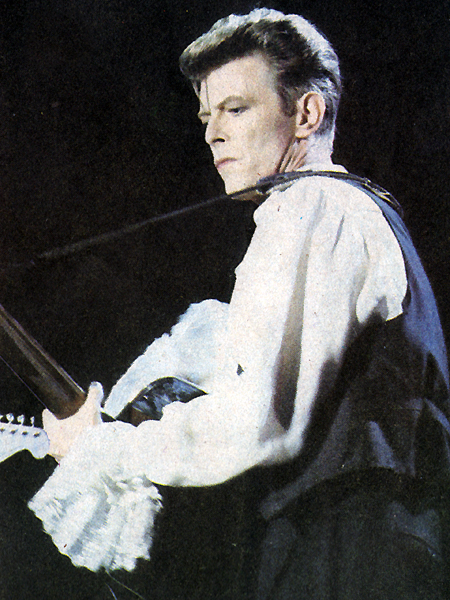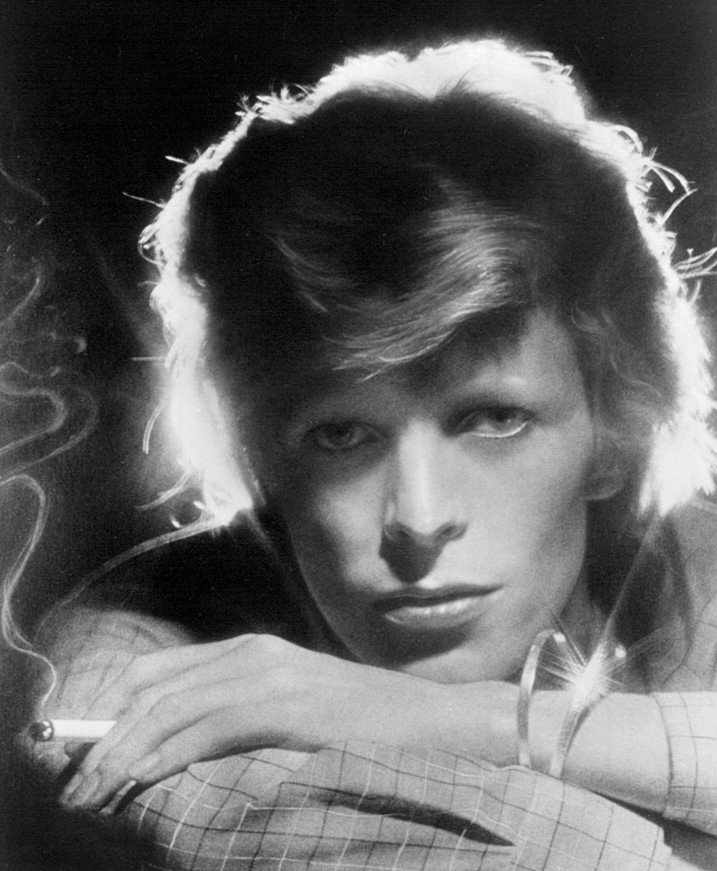David Bowie was a singer, songwriter and actor who was born in England. He was widely consider as prolific and innovative for his pop compositions and performances. His recording legacy spans across five decades and encompasses several personas, pop music styles, arrangements, and sub-matter. With his first major hit in 1968 called “Major Tom,” which chronicled the travels of an astronaut leaving earth, Bowie was able to gain his first major achievement with third album called “The Rise and Fall of Ziggy Stardust and the Spiders from Mars.” The album would include many songs that would inconify him as a songwriter, including “Starman,” Ziggy Stardust,” and “Suffragette City.” The album became an icon for Bowie in that it featured his focus on concept albums, art rock, and glam rock. It would also introduce one of his most famous personas in Ziggy Stardust that eventually led him to the filming of a movie based on the album, and in its namesake.
Later, in the 1970s, Bowie would team up with Brian Eno to create three albums that featured a major shift in Bowie’s musical style to electronic music. Beginning with “Low,” then “Heroes,” and ending with “Lodger;” these albums would be known collectively as the “Berlin Trilogy.” These recordings started when Bowie became a resident in West Berlin in late 1976. Together with producer Tony Visconti and musician Brian Eno, these albums would include a variety of prolific singles including “Heroes,” “Sound and Vision,” and “Boys Keep Swinging.” Bowie credited these albums as his “DNA.” This period would see him taking on another famous persona as “The Thin White Duke,” which first became the preceding alum titled “Young Americans.”
During the eighties, Bowie focused more on commercial visions of his pop style, having his most success with his album titled “Let’s Dance.” The album would feature his most famous songs of the era including “Modern Love,” “China Girl,” and “Let’s Dance.” The album included a cover of Iggy Pop’s “China Girl,” which Bowie co-wrote, and “Cat People (Putting Out Fire),” which was released by Bowie previous but was re-recorded for this album. The album was nominated for a Grammy but lost to Michael Jackson’s album “Thriller.”

Bowie continued to jump from style and persona. Moving from his leading of the art rock group Tin Machine to an era of electronic focus music in the late 1990s to a neo-classical period and onward until his final recordings.
Bowie became inspired by listening to his father’s collection of earlier Rock & Roll artist like Little Richard and Elvis Presley. He began performing music with rock groups in 1962, originally using the name Davy Jones (his real name his David Jones), Bowie would eventually change his stage name after being confused by the television character in the show “The Monkees.” He took the name Bowie in honor of the famous American pioneer James Bowie, who would die in the famous last stand at the Alamo in San Antonio, Texas.

On January 2016, two days after turning 69 and releasing his last album “Blackstar,” Bowie passed away from liver cancer in his New York City apartment. His contribution to music and pop culture will endure eternally.
Listen to David Bowie on Spotify

